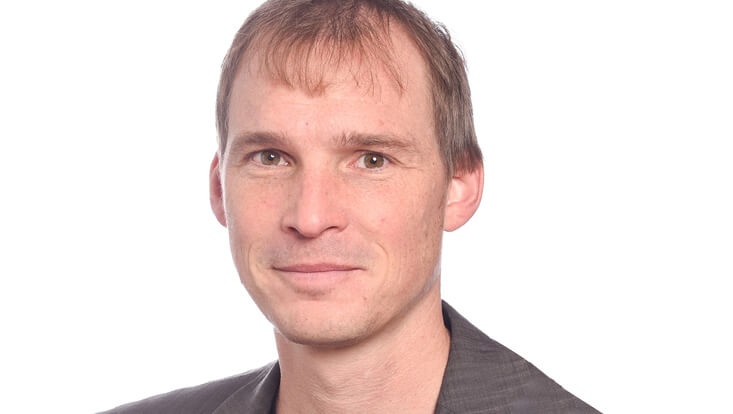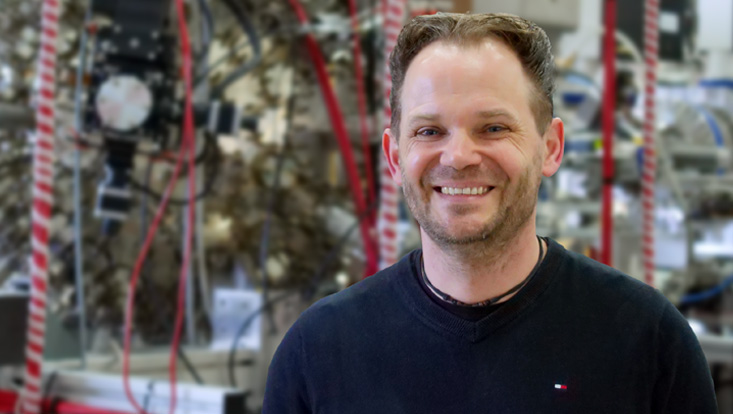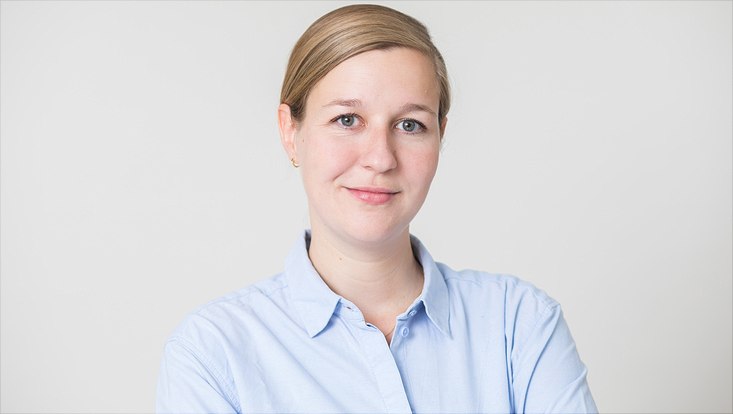Imaging of Matter
"Welcome Aboard""Understanding of quantum mechanics will play an increasingly important role outside of physics"Prof. Dr. Martin Eckstein will strengthen the Fakulty of Mathematics, Informatics and Natural Sciences
23 November 2022

Photo: privat
Every year, Universität Hamburg welcomes many new researchers. Here, we present part of a series to introduce them and their areas of research.
Prof. Dr. Martin Eckstein, previously at the University of Erlangen-Nürnberg, has been working in the Department of Mathmatics and the Cluster of Excellence "CUI: Advanced Imaging of Matter“ since 1 October 2022.
My research area in brief:
I study the dynamics of so-called quantum matter, i.e., systems in which unusual macroscopic behavior is caused by quantum effects on the microscopic scale. We try to understand theoretically how interesting behavior like superconductivity can be influenced in a targeted manner and on the shortest possible timescales. The description of such interacting many-particle systems often requires new concepts, which sometimes use quantum physical concepts themselves as part of the solution.
I explain what I do to friends as follows:
It has always been one of the most fundamental questions in physics how extraordinary macroscopic behavior arises from the cooperative interaction of many interacting objects. For example, the interaction of electrons in matter gives rise to unexpected phenomena such as superconductivity, in which electric current flows without resistance. We are particularly interested in the non-equilibrium dynamics of such states: Can we learn about the origin of cooperative behavior from the temporal evolution after an excitation? Are there ways to influence this behavior in a controlled manner, for example through tailored light pulses? We try to answer such questions theoretically, i.e., starting from the equations which describe the microscopic motion of electrons and atoms, and we collaborate with experimental groups that can gain detailed insight into the dynamics of complex matter using new devices such as the X-ray free-electron laser XFEL in Hamburg. For the theoretical understanding of the microscopic behavior, the laws of quantum mechanics are of central importance: As illustrated in the example of Schrödinger's cat, a quantum system can be present in several states at the same time. The number of these states increases exponentially when the number of particles in increased, and one quickly encounters equations that cannot be solved even with modern high performance computers. This multitude of possible states poses both the challenge for understanding quantum phenomena, and their potential for applications in the field of quantum technology. Our exciting task is to find new methods to describe these many particle systems, which ultimately also use quantum physical concepts themselves as part of the solution.
In Hamburg, the city and the University, I am looking forward to:
With the Cluster of Excellence CUI and research institutes such as the Max Planck Institute MPSD, Hamburg has developed into a location that is worldwide at the forefront in the field of the dynamics of quantum matter. The experimental infrastructure, including large devices such as the X-ray laser XFEL, allows a unique insight of how complex processes in matter evolve over time. I look forward to working with colleagues in this environment. At the same time, I got to know Hamburg as a cosmopolitan city with a high quality of life. The recent developments at the university and the exciting plans for the future show that science and education are held in high esteem here, not just in physics. I am convinced that all this makes Hamburg highly attractive for students and scientists from Germany and abroad, which will help to further establish this place as a leading science city.
This is why students should come to my lectures:
For me, quantum physics is the most fascinating field of physics. It contradicts our intuition in all its central principles, but is fundamentally important for understanding the nature that surrounds us. Theoretical solid state physics builds directly on the principles of quantum physics, and therefore stands at the exciting interface between a classical understanding of matter and new concepts of quantum technology: on the one hand we want to understand how quantum physics underlies the properties of matter, on the other hand we use quantum physical concepts themselves as a solution to various problems. I am convinced that quantum physics will continue to gain in importance for technological developments in the coming years, and that an understanding of quantum mechanics will play an increasingly important role outside of physics. With an appropriate education in physics, I would like to help prepare students to participate in this technological revolution.
Reaching out to the world: I work with the following international and federal institutions and universities:
Theoretical physics is and always has been a very international field. Almost every day I have discussions with colleagues from abroad, recently with working groups in Slovenia (Josef Stefan Institute, Ljubljana), Switzerland (University of Fribourg), Italy (University of Trieste, University of Salerno), the USA (Flatiron Institute in New York), and Japan (University of Tokyo).


